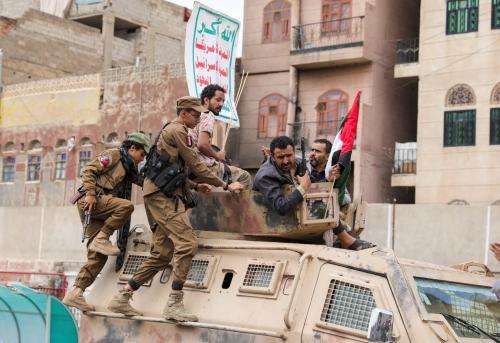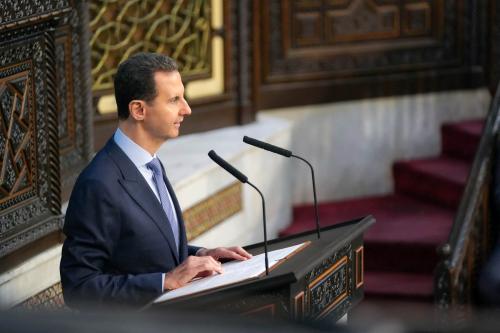Reproduced by permission of
The International Spectator (Vol. XXXIX No. 4, 2004), a publication of the Istituto Affari Internazionali.
The vituperative disputes that plagued transatlantic relations during 2003 centred around policy toward the Middle East, specifically Iraq and the Israeli-Palestinian conflict. Given this fresh history, it is perhaps surprising how much energy the Bush administration invested in 2004 toward joint US-European action to promote democratisation in the Middle East. Europe and the United States have now come to some agreement on key goals regarding the political, economic, and social development of the Middle East, and on the stakes for the West in the Middle East’s developmental success. The question remains: how meaningful is this apparent consensus, and what does it portend for the ability of Western states to influence developments in this important neighbouring region?
This article will assess the transatlantic agreement on democracy promotion in the Middle East that was embodied in the three transatlantic summits of June 2004,1 and mainly in the G-8’s ‘Partnership for Progress and a Common Future with the Region of the Broader Middle East and North Africa’ and its ‘Plan of Support for Reform’ (hereafter jointly referred to as the ‘BMENA Initiative’).2 Second, it will critically evaluate the approach to democratic reform evident on both sides of the Atlantic and the challenges this approach presents for effective action to advance democracy in the Arab world. Finally, the article will lay out two key programmatic challenges and one diplomatic challenge that remain to be tackled before effective mechanisms can be formulated to implement shared US and European objectives regarding Arab reform.3



Commentary
Promoting Democracy in the Arab World: The Challenge of Joint Action
December 1, 2004